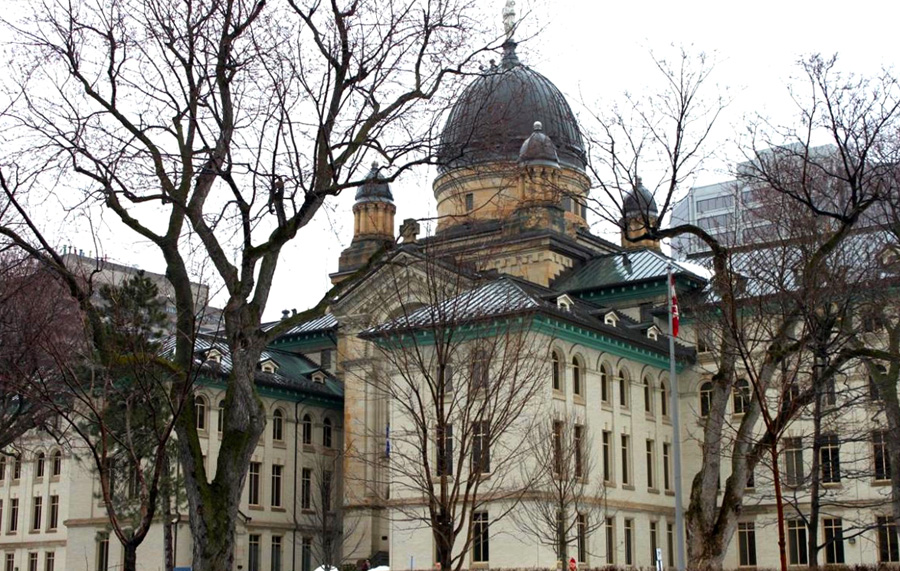Starting Sept. 21, Quebec’s National Assembly will debate Bill 96––a proposed amendment to the Canadian constitution that would declare Quebec a “nation” and make French its only official language. The bill has unsurprisingly sparked controversy in a province known for its biculturalism and history of intraregional tension. The English Montreal School Board (EMSB)’s retaliatory statement firmly denying Quebec’s nationhood––which the board withdrew a few days later due to backlash––only fanned the flames. Concerns about constricting teachers’ abilities in the classroom or limiting job opportunities for non-French speakers are just some of the bill’s many points of debate. The new law will only perpetuate existing linguistic divides, and politicians on both sides of the debate should promote individuals’ freedom to choose their language of education—rather than making that decision for them.
Hugh MacLennan’s 1945 novel, “Two Solitudes” is but one example demonstrating how the lack of communication between the anglophones and francophones has jeopardized Canadian political harmony. The novel illustrates the disjointed relations between French and English Canadians through characters who intentionally isolate themselves. This type of separatist rhetoric has circulated in the political sphere since the Lower Canada Rebellion of 1837. It gained traction again in the 1980s and 90s, dominating the two referenda concerning the question of Quebec’s national sovereignty. Today, it emerges once again in the form of Bill 96. Triggering passions on both sides, the bill makes no real effort to resolve ongoing polarization; instead, it further entrenches it.
In a last-ditch attempt to save face, EMSB chairperson Joe Ortana retracted his denial of Quebec’s nationhood, clarifying that the English-speaking community wants to be a part of it. Nevertheless, Ensemble Montreal dropped him as a candidate for the upcoming municipal elections in November.
Whether Ortana’s declaration was a semantic mishap or a politically motivated jab remains unclear––though in the current social climate, the latter seems most likely. What is clear is that relations between the EMSB and the native French speakers that attend its institutions will be all the more fractious. Speaking out against Bill 96’s proposed reforms and its potentially detrimental outcomes to anglophones and allophones is entirely reasonable; but attacking Quebec’s distinct nationship in so doing is irresponsible and frankly, unproductive.
Dialogue about the bill’s deleterious implications is absolutely necessary, and the concerns of the anglophone minority are not unfounded. Many parents and teachers alike are concerned about the ramifications this amendment might have in the classroom, given that the bill would require employees, including teachers, to communicate entirely in French. This would restrict non-French speaking teachers’ abilities and severely limit job opportunities for anglophones.
One of the most disturbing propositions of an otherwise tame series of requests––such as rendering signs to be completely in French––is its implications for CEGEP applicants. The bill would allow the government to intervene in the affairs and choices of students in Quebec, requiring English CEGEPs to primarily accept anglophones and mandating that no more than 17.5 per cent of the provinces’ students attend English language CEGEPs. Many francophone students feel they have to make the switch to English CEGEPs to optimize their career prospects, and although French colleges’ declining enrollment is a cause for concern, it must remain the student’s decision to attend a French or English CEGEP—not the government’s. No student’s future should be decided based on the vote-pandering movements of sour politicians.
Overall, this bill––and the heavily biased and partisan media frenzy surrounding it––will only further divide the anglophone and francophone populations. Rather than arguing over semantics, unnecessarily attacking the legitimacy of the Quebec nation, or barring French speakers from English CEGEPs, politicians should be trying to mitigate polarization in the province and bridge the gap between the “Two Solitudes.” MacLennan coined the term over 70 years ago and is most certainly rolling over in his grave at the news that, in 2021, we are still squabbling over the same petty argument.









It is not meant to be the solution to the Anglo-Franco divide. It is meant to increase that divide. It caters to nationalistic voters among the francophone population so as to secure their votes. They may not be the majority of the francophone population but the rest act as a silent majority. The bill doesn’t hurt them in any way so why kick up a fuss, right? They don’t seem even bothered by the use of the notwithstanding clause,
What is the solution? Perhaps it is time to reignite the debate about the partition of QC. Perhaps we here in the Western part of QC should have our own bilingual province with its capital in Montreal. Nunavik deserves to be its own province. After that is done, let the BQ take the remaining of the province where they want to.